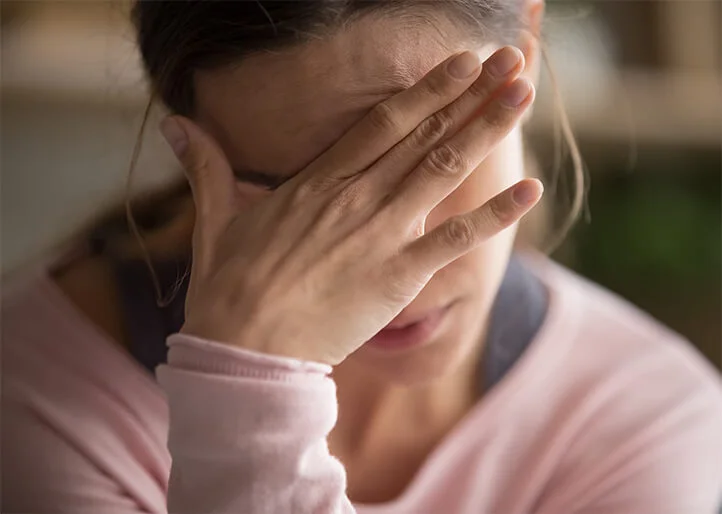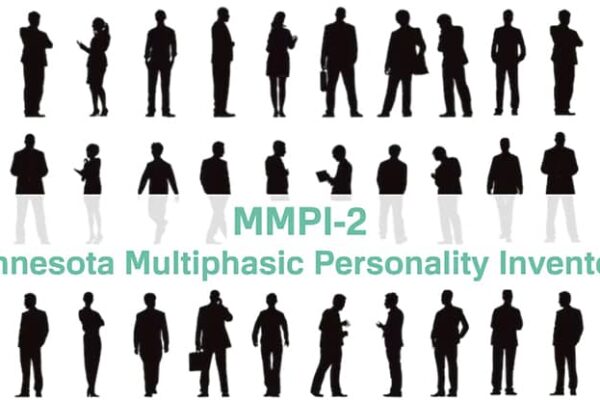Guilt is a complex emotional state that arises when a person believes or realizes they have committed a wrongful act, causing harm to themselves or others. This could involve violating personal moral standards, social norms, rules, or laws.
Guilt is usually associated with feelings of shame, remorse, and regret. It can be healthy when it motivates us to change and correct our mistakes, but it can also be unhealthy, leading to negative consequences for self-esteem and overall mental well-being. For example, excessive or chronic guilt often contributes to the development of depression, anxiety disorders, and other mental health problems.
Guilt, while a universal human emotion, is perceived and evaluated differently across various cultures. The influence of culture is especially evident in what actions cause guilt, how people express this feeling, and what strategies they use to overcome it.
- Western Culture: In Western culture, guilt is usually associated with individualism and a focus on personal responsibility. It is most often linked to a person’s actions, which are perceived as wrong or harmful to others.
- Eastern Culture: In Eastern cultures, guilt may be related to the violation of social norms and community expectations. Here, guilt often arises because a person perceives themselves as the cause of discomfort or problems for the group.
- Indigenous African Cultures: In some indigenous African cultures, guilt and shame are connected to the violation of spiritual or religious principles, as well as improper behavior towards the community or nature.

Guilt in Psychology
In psychology, guilt is considered a complex emotional state triggered by the awareness or belief in one’s own guilt for an action that contradicts personal moral principles or social norms, leading to negative consequences. This state may be accompanied by shame, remorse, and a desire to atone for the guilt or correct the mistake.
Guilt is dual in nature. On one hand, it can serve as a “moral compass,” motivating us to behave properly and do good deeds. On the other hand, prolonged or excessive guilt can lead to the development of negative psychological states, such as anxiety, depression, post-traumatic stress disorder, and even self-destructive behavior.
The Origin of Guilt: Social and Biological Factors
- Social Factors: The social origin of guilt is linked to the processes of socialization and learning that occur during upbringing. From an early age, we begin to learn the moral and ethical norms accepted in our society and family. If we commit actions that contradict these norms, we experience guilt. Depending on upbringing and cultural context, this feeling can be more or less pronounced.
- Biological Factors: The biological roots of guilt are connected to the functioning of our brain. Some studies suggest that certain brain regions, including the prefrontal cortex and amygdala, actively participate in the emergence of guilt. These brain areas are involved in emotional regulation, decision-making, and social behavior.
Thus, guilt is the result of the interaction between social and biological factors. It is shaped by social norms and expectations, as well as by biological processes in the brain that process information and manage our emotions and behavior.
Types of Guilt: Real, Obsessive, Toxic
- Real Guilt: Real guilt arises when we have indeed made a mistake or caused harm by violating personal or social norms. It is usually associated with a sense of responsibility, remorse, a desire to rectify the situation, or atone for the guilt. It can be beneficial, motivating us to change our behavior and ensure social adaptation.
- Obsessive Guilt: Obsessive guilt is a condition where the feeling of guilt persists even after a person has tried to atone for their guilt or correct the mistake. They may constantly dwell on their actions, obsessively analyze them, and feel guilty even for minor or imagined transgressions. Obsessive guilt is often associated with anxiety disorders and obsessive-compulsive disorder.
- Toxic Guilt: Toxic guilt is a feeling of guilt that becomes destructive and harms mental health. It may arise from an exaggerated sense of responsibility for events beyond the person’s control or from constant self-criticism and low self-esteem. Toxic guilt often leads to the development of depression, post-traumatic stress disorder, and other mental health problems.
The Connection Between Guilt and Other Emotions: Shame, Fear, Anger
- Guilt and Shame: While guilt is usually associated with specific behavior or action (“I did something bad”), shame is typically linked to a judgment of one’s character (“I am bad”). Both emotions cause discomfort and a desire to correct the situation, but shame can be more destructive and harder to overcome.
- Guilt and Fear: Guilt may be linked to the fear of punishment or rejection. This fear is often based on real consequences (such as punishment for breaking the law) or more abstract ones (such as the fear of losing others’ respect or love).
- Guilt and Anger: Guilt may arise alongside anger, especially when we believe we have caused harm to others. The anger may be directed at oneself for the wrongdoing. Sometimes, people may also feel guilty about their angry reactions, for not being able to control their anger.
It’s important to remember that the interrelation of emotions can be complex and unique for each person, depending on various factors, including personal beliefs, life experiences, and cultural context.

The Impact of Guilt on Behavior and Mental Health
Guilt can significantly influence a person’s behavior and mental health. In terms of behavior, guilt can motivate us to correct mistakes, reconcile with others, and encourage ethical behavior. This is related to what is known as “healthy” or “adaptive” guilt, which serves a useful social and personal function, helping us adhere to moral standards and improve interpersonal relationships.
However, when guilt becomes chronic, disproportionate, or related to events for which the person is not truly responsible, it can lead to serious mental health problems. These include anxiety and depressive disorders, post-traumatic stress disorder, self-esteem issues, and more. Such “unhealthy” or “toxic” guilt can intensify negative perceptions of oneself and the world.
Guilt as a Motivator for Action
- Positive Outcomes
Guilt can stimulate positive changes in behavior and support social connections. For example, if you feel guilty for hurting a friend, you are likely to apologize and try to make things right. Guilt also serves as a kind of “moral compass,” helping us realize when our actions do not align with our ethical standards or social norms. - Negative Outcomes
However, if guilt becomes disproportionate, chronic, or related to things for which we cannot be responsible, it can lead to negative outcomes, such as increased anxiety, depression, low self-esteem, and even self-destructive behavior. Instead of motivating us to positive actions, “toxic” guilt undermines our mental health and well-being.
Guilt and Mental Disorders
- Depression
Guilt is one of the primary symptoms of depression. People with depression often experience heightened feelings of guilt, which can be linked to disproportionate feelings of responsibility, negative self-thoughts, and self-criticism. - Anxiety Disorders
Guilt is also often associated with anxiety. People with anxiety disorders may feel guilty about their anxious feelings and symptoms, or blame themselves for everyday situations and problems. - Obsessive-Compulsive Disorder (OCD)
Guilt is particularly significant for people with OCD. Often, obsessions and compulsions are related to feelings of guilt or fear of causing harm to others. For example, a person may have obsessive thoughts about the possibility of accidentally harming another person and feel guilty about these thoughts, which in turn leads to compulsive behavior as an attempt to reduce the guilt.
Self-Destructive Behavior and Guilt
Guilt can be a powerful catalyst for self-destructive behavior, especially when it becomes chronic, disproportionate, or linked to things for which a person cannot be held responsible.
- Self-Punishment
Guilt can lead to a desire to “punish” oneself for one’s misdeeds. This manifests in self-destructive behavior, such as self-harm, substance abuse, or putting oneself at undue, life-threatening risk. - Physical Health
Additionally, guilt can lead to negative lifestyle changes that harm physical health. For example, people may stop taking care of themselves, engaging in physical activity, or eating properly. - Mental Health
Chronic guilt can lead to the development or exacerbation of symptoms of depression, anxiety, and other mental disorders. It also lowers self-esteem and contributes to negative thoughts about oneself and one’s life.
It’s important to remember that if guilt leads to self-destructive behavior, it is necessary to seek support and help from a psychologist.

How to Overcome Guilt
Overcoming guilt begins with accepting it and understanding that everyone makes mistakes and experiences guilt. Treat yourself with understanding and kindness by practicing self-compassion techniques. This helps to soften self-criticism and support your mental health during times of stress or mistakes.
It’s also important to recognize and analyze your actions to work through memories associated with guilt. If you are genuinely responsible for something, acknowledgment and apologies can be beneficial. However, it’s essential to distinguish between what is truly your responsibility and what is not.
Acknowledging Guilt: Understanding and Accepting Your Emotions
Acknowledging guilt is the first step toward overcoming this feeling. This process involves admitting that you feel guilty and then recognizing the emotions associated with it.
First, it’s crucial to realize that guilt is a part of our human experience, and there’s nothing wrong or abnormal about it. Guilt can arise from various factors and be the result of different situations, ranging from our actions to societal expectations.
Next, you should acknowledge your emotions. This means allowing yourself to feel guilt instead of denying or suppressing it. Recognize that guilt brings certain emotions, and this will lead to a greater understanding and awareness of these feelings.
Accepting emotions means approaching your guilt without judgment or criticism. Instead of condemning yourself for feeling guilty, accept it as part of your experience. This will help reduce the intensity of the emotions and allow you to manage them better.
The process of acknowledging and accepting guilt can be challenging and time-consuming, but it is a crucial step toward overcoming it and building healthy ways to cope with guilt in the future.
Psychotherapeutic Approaches
Cognitive-behavioral therapy (CBT), Gestalt therapy, and psychoanalysis offer different therapeutic approaches to processing guilt.
- Cognitive-behavioral therapy focuses on identifying and changing negative thought patterns that can cause guilt. Through CBT, patients learn to reevaluate their thoughts and behaviors, which helps them to overcome feelings of guilt.
- Gestalt therapy emphasizes the “here and now.” It helps individuals become aware of and accept their current feelings. In Gestalt therapy, guilt is viewed as an unconscious emotion that needs to be explored and integrated into conscious experience.
- Psychoanalysis views guilt as a result of internal conflicts and unconscious desires. Psychoanalysis helps patients explore the origins of their guilt on a deep, often subconscious level, and can offer resolution through understanding and integrating these conflicts.
Meditation and Mindfulness
Meditation and mindfulness are effective tools in combating guilt, as they help regain control over your thoughts and emotions.
- Forgiveness meditation helps release negative feelings like guilt and anger that may tie you to the past. During this meditation, you focus on forgiving yourself for what caused your guilt and treat yourself with love and compassion.
- Mindful breathing exercises help reduce guilt by shifting attention to your breath. When thoughts of guilt begin to fill your mind, focus on your breathing and monitor the process of inhaling and exhaling to relieve tension and anxiety.
- Mindfulness involves the conscious perception of your thoughts and feelings without judgment or any other reaction. It helps you recognize, accept, and let go of guilt, preventing it from affecting your mental state.
Practice these techniques regularly to gradually train your mind to release guilt, reduce tension, and calm down.
Self-Help
Self-help plays a crucial role in overcoming guilt. Here are some strategies that may help:
- Emotion journal. Writing down your emotions and thoughts helps you better understand guilt and identify patterns associated with it. Record situations when you feel guilty and what you think and feel during those moments.
- Affirmations are positive statements that help change negative beliefs or thoughts. For example, “I deserve forgiveness” or “I learn from my mistakes and grow” can help soften feelings of guilt.
- Building healthy relationships. Supportive, understanding people in your life can help you cope with guilt. Talk to friends and loved ones about your feelings and experiences. Sometimes, hearing their perspective can be very helpful.

Turning Guilt into a Positive Life Factor
Guilt, despite its negativity, often serves as a catalyst for positive change. This feeling can act as a signal, indicating that your behavior or actions do not align with your values or expectations. By recognizing this, you can use guilt as motivation to correct mistakes and make positive changes in your life.
Practice acceptance and self-forgiveness to redirect the energy spent on self-blame towards personal growth and development. Using guilt as an opportunity for learning and self-reflection will help you become more conscious, aware, and kind to yourself. Learning to turn guilt into a positive life factor is not just about freeing yourself from a burden but also a step toward emotional well-being and personal growth.
Guilt as an Opportunity for Growth and Self-Development
Guilt, while painful, is a valuable opportunity for growth and self-development. It acts as a mirror, allowing us to see where we deviate from our values or expectations. By experiencing guilt, we convince ourselves that we could have acted differently and that we have the potential to improve.
Using guilt as a tool for self-development begins with acceptance and self-forgiveness. Remind yourself that mistakes are part of the human experience and offer important lessons. Instead of dwelling on past sins, use them as stepping stones toward personal growth.
Next, identify specific steps to correct the behavior that caused the guilt. This might include apologies, making amends, or changing behavioral patterns.
Finally, use guilt as motivation to become a better version of yourself. Remember, your goal is not to avoid guilt but to learn to resist it, turning it into a positive and productive tool for self-improvement.
Guilt as a Tool for Correcting Mistakes and Reconciliation
Guilt can be an effective tool for correcting mistakes and reconciliation, as it stimulates responsible and ethical behavior. Guilt typically arises when we realize that our actions have harmed others or do not align with our values. This realization can drive change.
Using guilt to correct mistakes involves several steps. First, acknowledge the guilt and recognize your responsibility for the harm caused. Second, sincerely repent and apologize to those you have hurt or offended with your actions. Then, take steps to compensate for the harm, if possible, and prevent similar mistakes in the future.
Regarding reconciliation, guilt also plays a key role. It pushes us towards sincere apologies and a promise to improve, which are important elements of the reconciliation process. Guilt can stimulate empathy and compassion, helping us establish deeper and more honest connections with others.
At the same time, it is important to remember that guilt should be productive and constructive, not destructive. Unproductive guilt, which leads to self-criticism and degradation, is harmful and can result in psychological discomfort or even illness. Therefore, the key is learning how to properly use guilt as a tool for growth and improvement.
Positive Psychology and Guilt
Positive psychology focuses on strength, growth, and the positive aspects of the human experience. In the context of guilt, it can be viewed through the lens of post-traumatic growth. This concept suggests that significant personal growth and development often occur as a result of overcoming difficulties and traumatic events.
In the case of guilt, a person may experience deep suffering due to the harm caused or mistakes made, which can also serve as a catalyst for rethinking their life, values, and relationships. Guilt can lead to the realization of the need for change and become a driving force for post-traumatic growth.
Post-traumatic growth may manifest in improved relationships with others, deepened empathy, strengthened personal resilience, and enhanced self-understanding. By overcoming guilt and reconciling with it, people often begin to appreciate life more, discover new opportunities, and find a deeper meaning in their existence.
At the same time, it’s important to note that post-traumatic growth does not exclude the presence of suffering or pain. It coexists with these difficulties, offering a way for positive development amid challenging trials.

Summary and Conclusions
Guilt is a complex emotional state with profound implications for psychological well-being, social relationships, and personal growth. A scientific understanding of this phenomenon highlights the importance of managing guilt and using it as a means for positive change and self-development.
The process of accepting and working with guilt can involve numerous steps, from acknowledging and accepting your emotions to applying specific psychological techniques and strategies such as cognitive-behavioral therapy, mindfulness, and self-help.
However, working with guilt is not just about relieving unpleasant emotions. It is also an opportunity for personal growth, self-reflection, and the development of empathy and resilience. In this context, positive psychology and the concept of post-traumatic growth offer powerful tools for understanding and utilizing guilt as a catalyst for positive change.
At the same time, much remains to be learned about guilt and its role in human psychology. Future research will explore the deeper and more complex aspects of guilt, including its interconnections with other emotions, its role across different cultures and contexts, and its impact on mental health and well-being throughout life.
In conclusion, it is important to emphasize that although guilt can be painful, it is also a powerful tool for self-awareness, correcting mistakes, and personal growth. Acceptance and constructive use of guilt help us become more conscious, empathetic, and responsive individuals.




